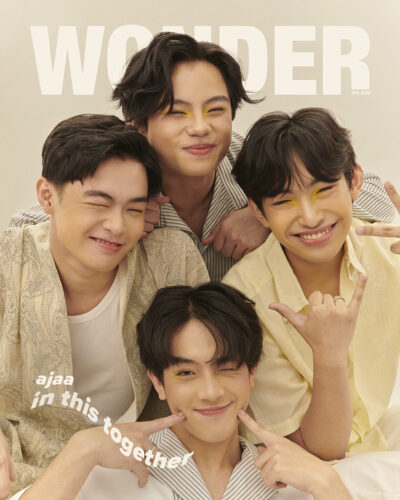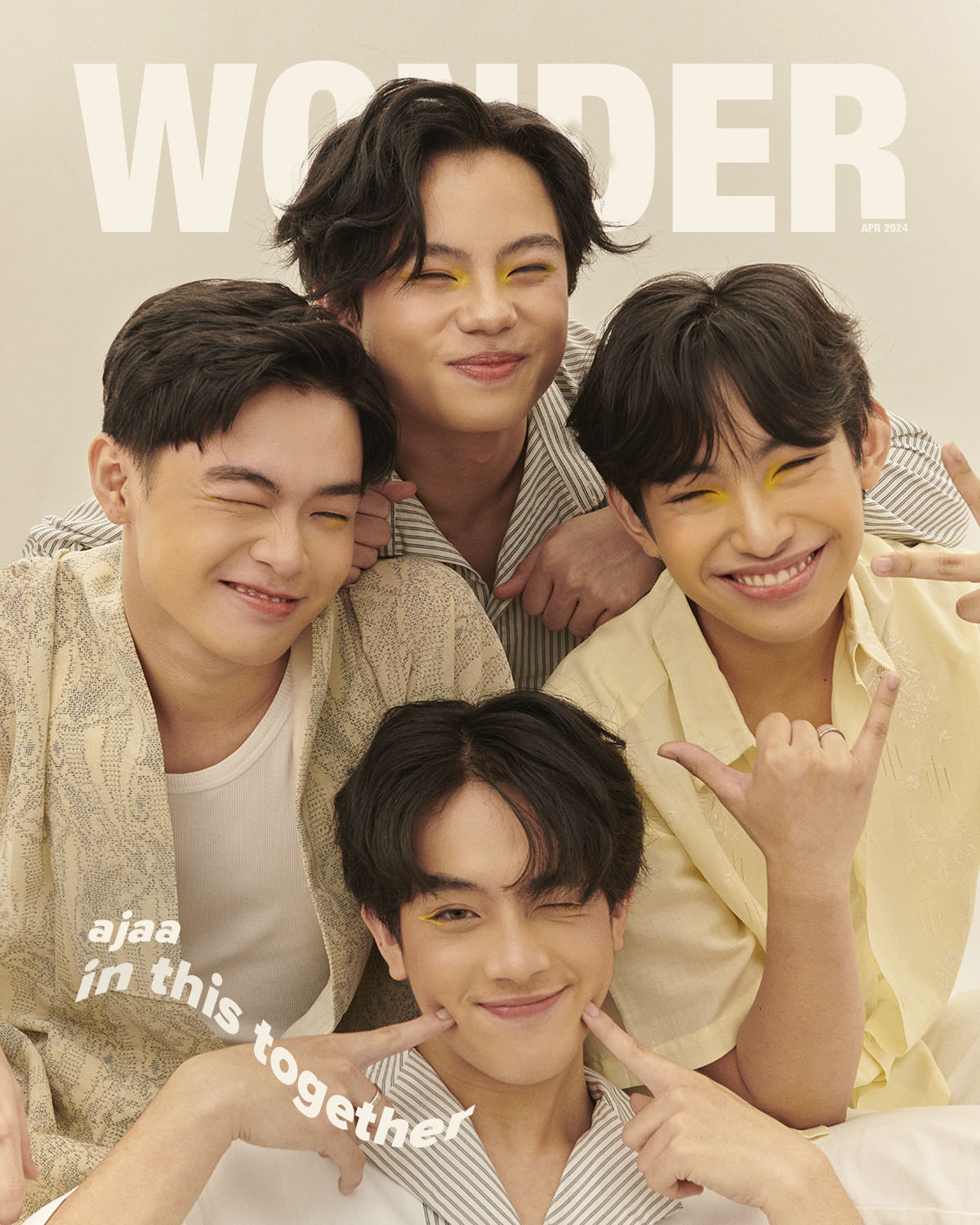We chat with four twenty-something women on how girlboss culture shaped them, for better and worse
Fun fact: you can always tell someone’s age based on their reaction to the word “girlboss.”
For Millennials, the word connotes the best of 2010s feminism: a time of unbridled optimism when the gender equality movement fully went mainstream. Beyoncé defined the movement by sampling Chimamanda Ngozi Adichie in her hit song Flawless, Dior sent “we should all be feminists” t-shirts down the runway, and we were all sure Hillary Clinton would become president.
RELATED: Why Kris Aquino, the OG Tita of Manila, Should Be Considered a Feminist Icon
Nasty Gal founder Sophia Amoruso first introduced the girlboss in her best-selling book of the same name in 2014, and it would define an era where women were encouraged to find fulfillment in their careers. Just a year earlier, Facebook COO Sheryl Sandberg’s book, Lean In, told women to assert themselves at work. And in 2016, Emily Weiss founded the wildly popular beauty startup Glossier and was dubbed the ultimate girlboss. The message was clear: being a girlboss meant working tirelessly to shatter glass ceilings and prove just how successful women can be at work.
But to Gen Z, “girlboss” is met with a heavy dose of derision. The 2020s, after all, is a totally different cultural moment: the dream job is officially dead and hustle culture is passé. Young feminists argue that the girlboss mentality only keeps capitalist structures in power—a feeling perfectly captured by the TikTok meme “gaslight, gatekeep, girlboss.”
So, in a world where anti-work sentiment is on the rise, we couldn’t help but wonder: is the girlboss dead? Ahead, we speak to four twenty-something women who grew up influenced by the girlboss era to get their verdict.
Wonder: Define the term girlboss in your own words. Who is she?
Zoe, 29, Writer: I think the girlboss is independent and completely self-sufficient. She's not affected by external factors; she's very in control, extremely self-assured and has a very defined set of goals.
Andy, 25, Assistant Brand Manager: A girlboss is someone who’s their own boss. It means knowing when to set your boundaries and defining your success on your own terms.
Yen, 29, Operations Manager: She’s someone who has her shit together. She's hyper-independent and secure in all aspects. And I have to agree with Andy, she's someone who knows when to say no. She knows herself, she stays true to her values.
Belle, 28, Mental Health Advocate: For me, the girlboss is a female disruptor. It started as a response to tech bros like Zuckerberg, because women can be CEOs, too! Most of the girlbosses we know are outliers in their field, and they were very go against the grain, chase your dreams in a male-driven field.
Andy: I wanna add, the term “girlboss” is very much a product of the patriarchy. It was a way for us to take up the space that was clearly meant for women. ‘Wag niyo naman ipagdamot sa amin ‘to (Don't keep this away from us)!
Wonder: Great points! To add, the girlboss movement came in the 2010s as a response to, badly put, the “Paris Hilton-ification” of women in the 2000s.
Belle: Omg, yes.
Wonder: It was a time where women were expected to shop mindlessly, to be skinny and wear cute clothes, and that was it. The girlboss really was this backlash, and it was so pervasive for so much of our formative years. When do you first remember encountering the term?
Belle: 2017-ish. It was the Glossier lady. And the girl who wrote Girlboss, Sophia Amoruso.
Zoe: She also had a show.
Belle: I think her book’s downfall was how it got so popular [that] it became cringe. Back in 2017, all my friends and I wanted to be girlbosses. We were, like, “We’re gonna build our empires, we are going to be trendsetters.” And now looking back, I want to die.
Zoe: I watched the show, and the number one thing they got wrong was how they depicted girlbosses as unlikeable. They made girlboss synonymous with bitch.
Andy: That really annoys me. That idea that a girlboss needs to be rude and firm, you have to act like a man—it really all goes back to the patriarchy! One more thing, I wanted to add to Belle's point about building your own empire. It's really rooted in hustle culture.
RELATED: Beyond the Hustle: Why You Need to Revisit Your Hobbies
Belle: Yeah, like you can't succeed as a girlboss if you're not ruthless in some way. I really feel like it's rooted in internalized misogyny. Like if I don't make certain sacrifices, I can't succeed. If you want to thrive, you have to work your ass off and compromise your morals.
Yen: In 2017, I fell for the girlboss, too. I got promoted really quickly, and I was proud of that. But I would also glorify how I'd only sleep for an hour every night. I'd cry inside the bathroom at work and, sometimes, I'd even post it on social media! Thinking about it now, it's not a flex.
Zoe: Success is not suffering.
Yen: Yes! Exactly. Success is not just dominating a man's world. Not every woman wants to hustle hard, some just want to sleep well at night. And there's nothing wrong with that.
Belle: It also feels very exclusionary, like when you think of a girlboss, you think of someone female-presenting. The girlboss archetype is a powerful cishet woman, but what about non-binary people or queer women? They get left out.
Success is not suffering.
—Zoe, 29
Wonder: What sacrifices have you made in the pursuit of becoming a girlboss?
Belle: My mental health.
Yen: Time for family. I skipped so many birthdays, celebrations and other family gatherings. Looking back, it wasn’t worth it. No matter how good a worker you are, if you die, you're dispensable. But the time you spend with your loved ones, that's priceless.
Zoe: My mother is very girlboss, she's probably the most hardworking person I know. But, she's so programmed to believe that if you're not suffering, you're not doing enough. Like if you feel guilty when you take a nap, something's wrong.
Belle: Yes! Up to this day, I get so guilty when I don't do anything on the weekend. I'm lucky to have my partner who's, like, “Can you please calm down, it's a Saturday. Go nap.”
Wonder: Has the girlboss ideal ever influenced your career decisions?
Andy: Yes. I tried to be super productive, but I ended up burning myself out. And mind you, I was really young! I was way too young to be burnt out and experience corporate trauma.
Recently though, there's been a vibe shift. During the pandemic, we were forced to re-evaluate what our priorities are. I realized that being a girlboss also means having a personal life. Like do I have time to go to the salon, travel and go to the gym? Do I have time to be my own person?
Belle: During the pandemic, I realized that work isn't everything and started prioritizing my mental health. I also think that with Gen Z entering the workforce, suddenly the concept of the girlboss felt really Millennial. I really feel like they're such generational disruptors; they know work isn't everything.
Andy: Quiet quitting! It's such a Gen Z thing, to just do what's in the job description. It's okay to relax, you don't always have to give 110 percent. Sometimes it's okay to give the bare minimum.
Yen: In 2019, I resigned because of a very traumatic experience where my ex-boss would belittle me because of the mistakes I'd make. So, I resigned and moved to another company. I learned to be the kind boss that I needed back then.
Being a girlboss also means having a personal life, or having time for myself to achieve my personal goals.
Like do I have time to go to the salon, travel and go to the gym? Do I have time to be my own person?
—Andy, 25
Zoe: I don't know if this is bad for me to say as a woman, but I never really wanted to be a CEO. What if I don't want to be the next female Elon Musk? People think that being a girlboss means achieving something really grand. But it doesn't always have to be that way.
Andy: Zoe, what you just said, it's so rooted in capitalism. It's sad! I think it's so life-changing when you finally free yourself from outdated career ideas, like burnout or toxic productivity.
RELATED: A Look At Millennial Work Culture & The Truth Of Our Generation
Belle: Omg yes. In 2017, I started teaching bullet journaling workshops to corporate people who wanted to streamline their productivity. But when the pandemic hit, I really needed to reset and figure out why I do what I do. So, I shifted to self-care journaling. Maybe we don't need to be productive all the time, sometimes we need to rest and take care of ourselves.
And I think that's when the concept of the girlboss died for me. It felt very “How do I make a product that sets me apart” instead of “How do I change the world and make it a better place?”
Yen: I feel like it's sad when women use the girlboss mentality to exploit other women. Like just because you had it tough in your day doesn't mean that we have to experience it the same way you did. Feminism comes in all forms, and it's not just girlboss feminism.
Just because you had it tough in your day doesn't mean that we have to experience it the same way you did.
Feminism comes in all forms, and it's not just girlboss feminism.
—Yen, 29
Wonder: Why do you think the girlboss was so pervasive in the last decade?
Andy: I guess [we] women just want to be recognized for what we do. And to be honest you guys, we do more than men. There's this article I read in Bloomberg Business; apparently men apply to jobs they're not qualified for, they shoot their shot. But for women, we make sure we’re at least 80 percent qualified before we apply. I don’t even know.
Zoe: I think the girlboss mentality affects your relationships with other women.
Belle: I think it's rooted in internalized misogyny. Like you're competing with other women because we were groomed to treat other women as competition and not as collaborators.
Andy: It is so important to have a group of women as a proper support system. Girls who validate what you feel and call you out on your BS. I really believe that empowered women empower women.
RELATED: She Talks Asia 2023: We’re All Rebuilding and Thriving Holistically
Belle: Right now, feminism is shifting towards the idea that gender neutrality is more important than gender equality. The girlboss came from this idea that women need to stand out against this sea of entitled men. But now that we understand that gender is a spectrum, why can't we just do the gender-neutral thing and call ourselves bosses?
Yen: When you say girlboss, it implies that it's rare, like it isn't common for women to be successful. When I got promoted, everyone started calling me girlboss. And it's, like, bakit hindi pwede boss lang? Parang hindi naman achievable ‘yung na-achieve ko (And it's like, why not just boss? It's like what I achieved isn't achievable).
Zoe: That's so true, and people apply it also to such mundane things. Like if you drive well, wow, girlboss! If you're a gamer, oh she's a girl, hello girlboss!
Wonder: The girlboss had a lot to do with upending the expectations of what a woman should be like. And now that those expectations are evolving…
Belle: It's not relevant anymore today. It's like how with the Kardashians, Kim needs to work several jobs and be a lawyer and a mother and an entrepreneur, and Kourtney just wants to stay home with her kids. Both choices are valid.
Yen: Now that women have more choices, I feel like the least that you can do for another woman is to support her. Being a girlboss sets such a superficial standard, like if you don't wanna be a career woman, you're excluded—which makes me think that it's not very intersectional.
Belle: I hate it when people call out women who choose to be housewives and say they're setting back feminism 50 years. No, you're actually embodying modern feminism because you're showing how you exercise your choice.
It’s like you can't succeed as a girlboss if you're not ruthless in some way.
I really feel like it's rooted in internalized misogyny.
—Belle, 28
Wonder: So, my final question—is the girlboss dead? Or, does the girlboss still align with your values today?
Zoe: Maybe it's a personal term now. It's completely subjective now, I think.
Belle: I think moving forward, we are redefining what it means to be a successful woman. I don't really think I want to build my empire or be a career girl anymore.
Zoe: I always wanted to be this big working girl, maybe like my mother. But now, all I want to do is use my career to become self-sufficient. I just wanna take care of my pets, and do well in my job, yes. But that's no longer my main priority.
Belle: I still do wanna make an impact, but I don't really need to have a huge position. My goal in life now is to become an art therapist, because that's how I believe I can help the most people with my skills.
Zoe: Also! You don't always have to monetize doing what you love.
Andy: I don't think the girlboss is dead. It's gonna take a while for society to move on from that mentality, I think. But I think she’s going through a rebrand. It's more about redefining the girlboss on your own terms based on what is important to you.
Yen: I'm an advocate for supporting women with whatever they want to be, whether it's a housewife or a single woman or a career woman or someone who travels the world. If that's what makes you happy, then you go girl. I'm all for it. Don't let society tell you how a woman should be.
RELATED: Kinkeeping: The Unspoken Responsibility of Women
Readers, we want to hear it from you: is the girlboss dead? Chime in at the comments!
Follow Andy, Belle, Yen and Zoe on Instagram.
Words Jer Capacillo
Art Matthew Ian Fetalver


















